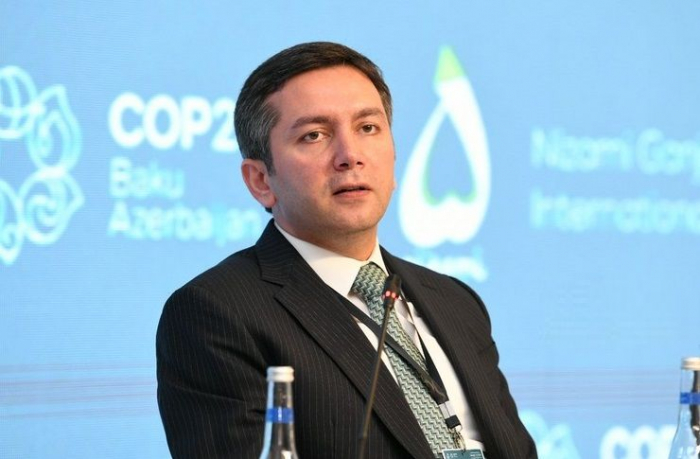“When the world comes together in Baku this fall for the 29th World Climate Conference (COP29), it will not only be about climate and emissions, but above all about Money. There is one question that needs to be answered at this “financing COP”: who will ultimately pay for the global fight against climate change? Ever since President Aliyev declared a few weeks ago that the COP in his own country would certainly not prevent him from “investing in God-given natural gas,” host Azerbaijan has also been criticized,” the Chief Negotiator added.
Speaking about the greatest expectation to clarify the questions regarding international climate finance, he noted: “New rules are needed for how richer countries help poorer ones in order to enable the fight against global warming there too. This is our collective responsibility. Baku becomes the litmus test for the Paris Agreement. If we want to keep it alive, we have to clarify how we want to finance climate protection in the future. Otherwise everyone will start to question the legitimacy of the international climate conferences. We have known since last year that no country is doing enough to tackle the climate crisis and most are not even promising enough. This year, every nation should present improved climate promises.”
Highlighting the means in tackling climate crisis, Yalchin Rafiyev emphasized that without the means to implement urgent action will have little impact on developing countries. “That's why our aim is that we not only improve the goals, but also provide the means to implement them. It's about money and technology,” he emphasized.
On the Azerbaijan`s measures and targets, Yalchin Rafiyev mentioned the commitment by SOCAR to achieve net zero emissions by 2050, describing it as a significant step in this.
“We are committed to accelerating the transition to clean energy and securing additional sources of financing,” Rafiyev underscored.
Yalchin Rafiyev also stressed the roles of oil cartel OPEC and the atomic energy authority IAEA in the clean energy transition, saying that “International organizations like the IAEA are crucial to the clean energy transition. The IAEA's projects such as “Atom for Food” and “Atom for Climate” are significant contributions. Their efforts to combine mitigation and adaptation measures align well with the goals of the Paris Agreement.”
Touching upon the investment issues, Chief negotiator Yalchin Rafiyev noted: “Investment is particularly important in developing countries, where there is significant potential for solar energy but little investment due to perceived risks. COP29 aims to promote investment in these regions. In 2022, the industrialized nations paid the promised $100 billion to the poorer countries for the first time, but that will not be enough in the future. We have 14 initiatives on our presidential agenda, including voluntary climate commitments, which we will make public soon.”
Yalchin Rafiyev also mentioned the excellent preparations for the upcoming COP29.
AzVision.az
More about:
















































